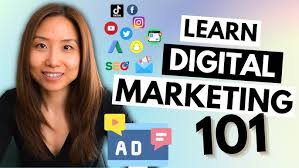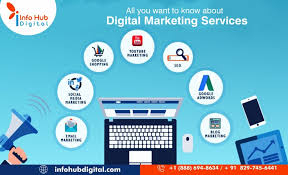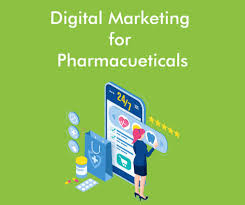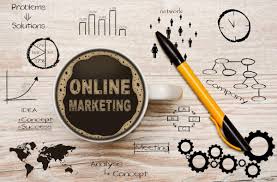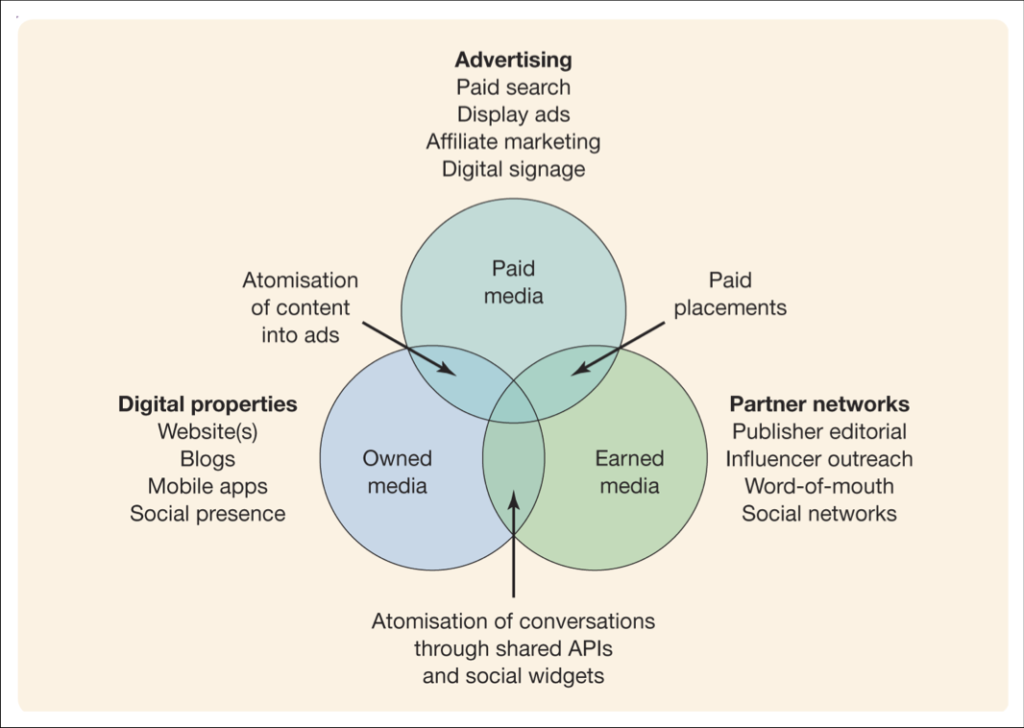The Power of Digital Marketing in Today’s Business Landscape
In the fast-paced and ever-evolving world of business, digital marketing has emerged as a powerful tool for companies to reach and engage with their target audiences. With the rise of the internet and social media, traditional marketing strategies have taken a back seat as businesses shift their focus towards digital platforms to promote their products and services.
Digital marketing encompasses a wide range of tactics and techniques aimed at connecting businesses with potential customers online. From search engine optimisation (SEO) and pay-per-click (PPC) advertising to social media marketing and email campaigns, the digital marketing landscape offers endless possibilities for companies to increase their brand visibility and drive sales.
One of the key advantages of digital marketing is its ability to provide measurable results in real-time. Unlike traditional marketing methods, which can be difficult to track and evaluate, digital marketing allows businesses to monitor the performance of their campaigns accurately. Through analytics tools, companies can gain valuable insights into customer behaviour, campaign effectiveness, and return on investment.
Another significant benefit of digital marketing is its cost-effectiveness. Compared to traditional advertising channels such as print or television, digital marketing offers a more affordable way for businesses to promote their products and services. With targeted advertising options available on platforms like Google AdWords and Facebook Ads, companies can reach specific demographics with precision and maximise their marketing budget.
Furthermore, digital marketing enables businesses to engage with their audience in a more personalised manner. Through social media platforms and email newsletters, companies can build relationships with customers by delivering relevant content tailored to their interests and preferences. This level of engagement not only helps in building brand loyalty but also encourages repeat business from satisfied customers.
In conclusion, digital marketing has revolutionised the way businesses connect with consumers in today’s competitive marketplace. By harnessing the power of digital channels effectively, companies can enhance their brand presence, drive traffic to their websites, generate leads, and ultimately increase sales. As technology continues to advance, embracing digital marketing strategies will be essential for businesses looking to stay ahead of the curve and succeed in the digital age.
Essential Tips for Effective Digital Marketing: Engaging Audiences and Boosting Visibility
- 1. Understand your target audience and tailor your content to their needs and preferences.
- 2. Utilise social media platforms effectively to engage with your audience and promote your brand.
- 3. Invest in search engine optimization (SEO) to improve the visibility of your website in search engine results.
- 4. Create compelling and relevant content that adds value to your audience and encourages them to interact with your brand.
- 5. Use email marketing campaigns strategically to nurture leads, build relationships, and drive conversions.
- 6. Analyse data regularly to track the performance of your digital marketing efforts and make informed decisions for future strategies.
1. Understand your target audience and tailor your content to their needs and preferences.
To succeed in digital marketing, it is crucial to thoroughly understand your target audience and customise your content to resonate with their specific needs and preferences. By conducting thorough research and analysis, businesses can gain valuable insights into the behaviours, interests, and demographics of their target customers. Tailoring content that addresses their pain points, interests, and desires not only enhances engagement but also builds trust and loyalty with the audience. This personalised approach ensures that your digital marketing efforts are relevant, impactful, and effective in connecting with your target audience on a deeper level.
2. Utilise social media platforms effectively to engage with your audience and promote your brand.
To succeed in digital marketing, it is crucial to utilise social media platforms effectively to engage with your audience and promote your brand. Social media offers a direct channel to connect with customers, share valuable content, and build relationships that foster brand loyalty. By understanding the preferences and behaviours of your target audience on platforms such as Facebook, Instagram, Twitter, and LinkedIn, you can tailor your messaging to resonate with them effectively. Consistent engagement through interactive posts, timely responses to comments and messages, and strategic use of paid advertising can help boost brand awareness and drive customer engagement. Remember, in the digital age, a strong social media presence is key to staying relevant and competitive in the market.
3. Invest in search engine optimization (SEO) to improve the visibility of your website in search engine results.
Investing in search engine optimisation (SEO) is a crucial step in enhancing the visibility of your website in search engine results. By implementing SEO strategies such as keyword optimisation, quality content creation, and link building, you can improve your website’s ranking on search engine results pages. This increased visibility not only drives more organic traffic to your site but also establishes your brand as a credible and authoritative presence online. In today’s competitive digital landscape, prioritising SEO can significantly impact the success of your online marketing efforts and help you reach a wider audience effectively.
4. Create compelling and relevant content that adds value to your audience and encourages them to interact with your brand.
Creating compelling and relevant content is a crucial aspect of successful digital marketing. By providing valuable information, insights, and entertainment to your audience, you can establish a strong connection with them and build trust in your brand. Encouraging interaction through engaging content such as blog posts, videos, social media updates, and infographics not only attracts attention but also drives engagement and fosters loyalty among your target audience. Remember, quality content that adds value to your audience is key to building lasting relationships and driving business growth in the digital realm.
5. Use email marketing campaigns strategically to nurture leads, build relationships, and drive conversions.
Utilising email marketing campaigns strategically is a powerful tool in the realm of digital marketing. By crafting targeted and engaging emails, businesses can nurture leads, establish meaningful relationships with their audience, and ultimately drive conversions. Through personalised content and timely communication, email marketing allows companies to stay top-of-mind with potential customers, provide valuable information, and guide them through the sales funnel. This approach not only helps in building trust and credibility but also increases the likelihood of turning leads into loyal customers.
6. Analyse data regularly to track the performance of your digital marketing efforts and make informed decisions for future strategies.
Regularly analysing data is a crucial aspect of successful digital marketing. By tracking the performance of your digital marketing efforts, you can gain valuable insights into what is working well and what areas may need improvement. This data-driven approach allows you to make informed decisions when planning future marketing strategies, ensuring that your efforts are targeted and effective in reaching your business goals.

